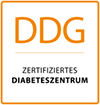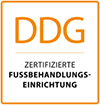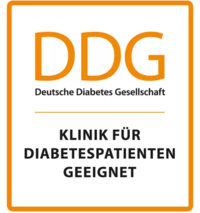Hospitals for Rectal Cancer Treatment in Germany
Each hospital in this list meets Booking Health’s strict international standards: at least 250 surgeries per year, ISO‑certified quality management, and documented survival outcomes. Our medical board then ranks the clinics by clinical expertise, technology, and patient‑satisfaction scores.

According to the authoritative Focus magazine, the University Hospital Duesseldorf ranks among the top Germany hospitals! The hospital is an excellent example of a combination of high-quality health care, research and teaching activities. With more than 50,000 inpatients and about 300,000 outpatients every year, the hospital is 







Diagnosis of colorectal cancer
Price from:
5439.24
Go to the program Surgical treatment of rectal cancer with endoscopic resection
Price from:
29506.85
Go to the program Colostomy closure of rectal cancer after cancer resection with coloctomy
Price from:
20525.62
Go to the program Multimodality treatment of peritoneal carcinomatosis with cytoreductive surgery and HIPEC
Price from:
68227
Go to the program Multimodality treatment of rectal cancer with cytoreductive surgery and HIPEC
Price from:
68387
Go to the program Surgical treatment of rectal cancer with transanal excision of the affected part of the rectum
Price from:
31049.88
Go to the program Treatment of colorectal cancer with chemotherapy
Price from:
7354.08
Go to the program Treatment of colorectal cancer with radiation and chemotherapy
Price from:
16848.65
Go to the program Treatment of colorectal cancer with stenosis via endoscopic dilation
Price from:
9715.6
Go to the program Treatment of rectal cancer with embolization or chemoembolization
Price from:
31124
Go to the program 
According to the Focus magazine, the University Hospital of Ludwig Maximilian University of Munich is regularly ranked among the best medical institutions in Germany! The hospital is the largest multidisciplinary medical facility, as well as a leading research and training center in Germany and Europe. The hospital is proud of i









Diagnosis of colorectal cancer
Price from:
0.00
Go to the program Da Vinci treatment in rectal cancer
Price from:
29753.23
Go to the program Surgical treatment of rectal cancer with endoscopic resection
Price from:
29555.92
Go to the program Colostomy closure of rectal cancer after cancer resection with coloctomy
Price from:
20728.16
Go to the program Multimodality treatment of peritoneal carcinomatosis with cytoreductive surgery and HIPEC
Price from:
67968
Go to the program Multimodality treatment of rectal cancer with cytoreductive surgery and HIPEC
Price from:
68123
Go to the program Surgical treatment of rectal cancer with transanal excision of the affected part of the rectum
Price from:
30622.88
Go to the program Treatment of colorectal cancer with chemotherapy
Price from:
8334.39
Go to the program Treatment of colorectal cancer with radiation and chemotherapy
Price from:
20021.37
Go to the program Treatment of colorectal cancer with stenosis via endoscopic dilation
Price from:
9718.74
Go to the program Treatment of rectal cancer with embolization or chemoembolization
Price from:
31376.65
Go to the program 
According to the reputable Focus magazine, the Helios Hospital Berlin-Buch ranks among the top medical facilities in Germany! The clinic is proud of its rich history, which dates back over 100 years, as well as the status of a maximum care medical center with exceptionally high success treatment rates. The medical institution is







Diagnosis of colorectal cancer
Price from:
0.00
Go to the program Surgical treatment of rectal cancer with endoscopic resection
Price from:
25154.41
Go to the program Colostomy closure of rectal cancer after cancer resection with coloctomy
Price from:
17622.26
Go to the program Multimodality treatment of peritoneal carcinomatosis with cytoreductive surgery and HIPEC
Price from:
55859
Go to the program Multimodality treatment of rectal cancer with cytoreductive surgery and HIPEC
Price from:
56316
Go to the program Surgical treatment of rectal cancer with transanal excision of the affected part of the rectum
Price from:
25725.48
Go to the program Treatment of colorectal cancer with chemotherapy
Price from:
7722.61
Go to the program Treatment of colorectal cancer with radiation and chemotherapy
Price from:
17530.38
Go to the program Treatment of colorectal cancer with stenosis via endoscopic dilation
Price from:
8875.18
Go to the program 

